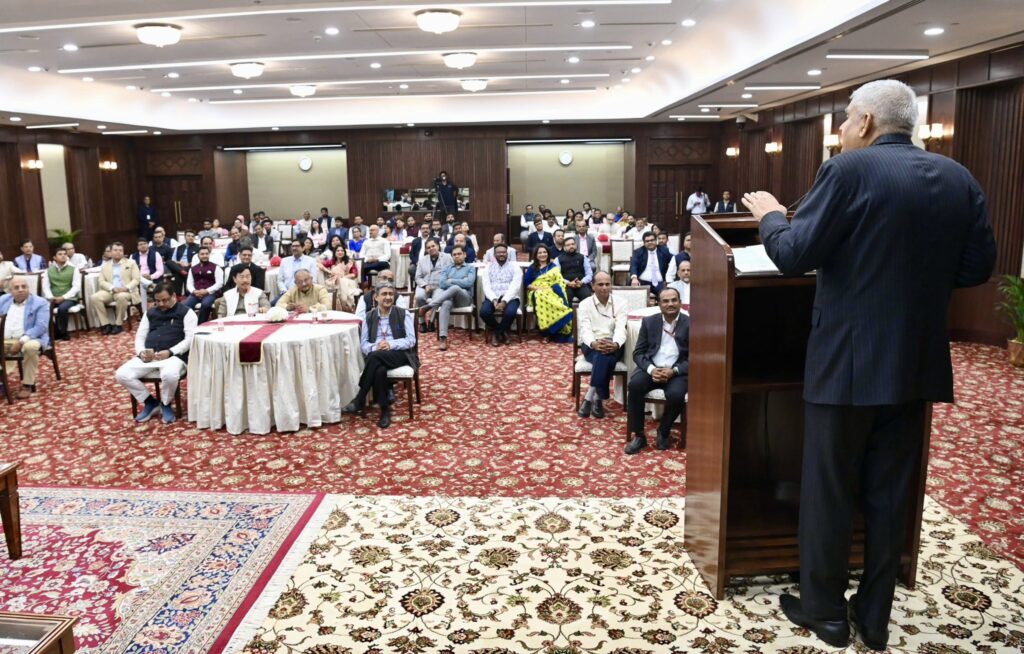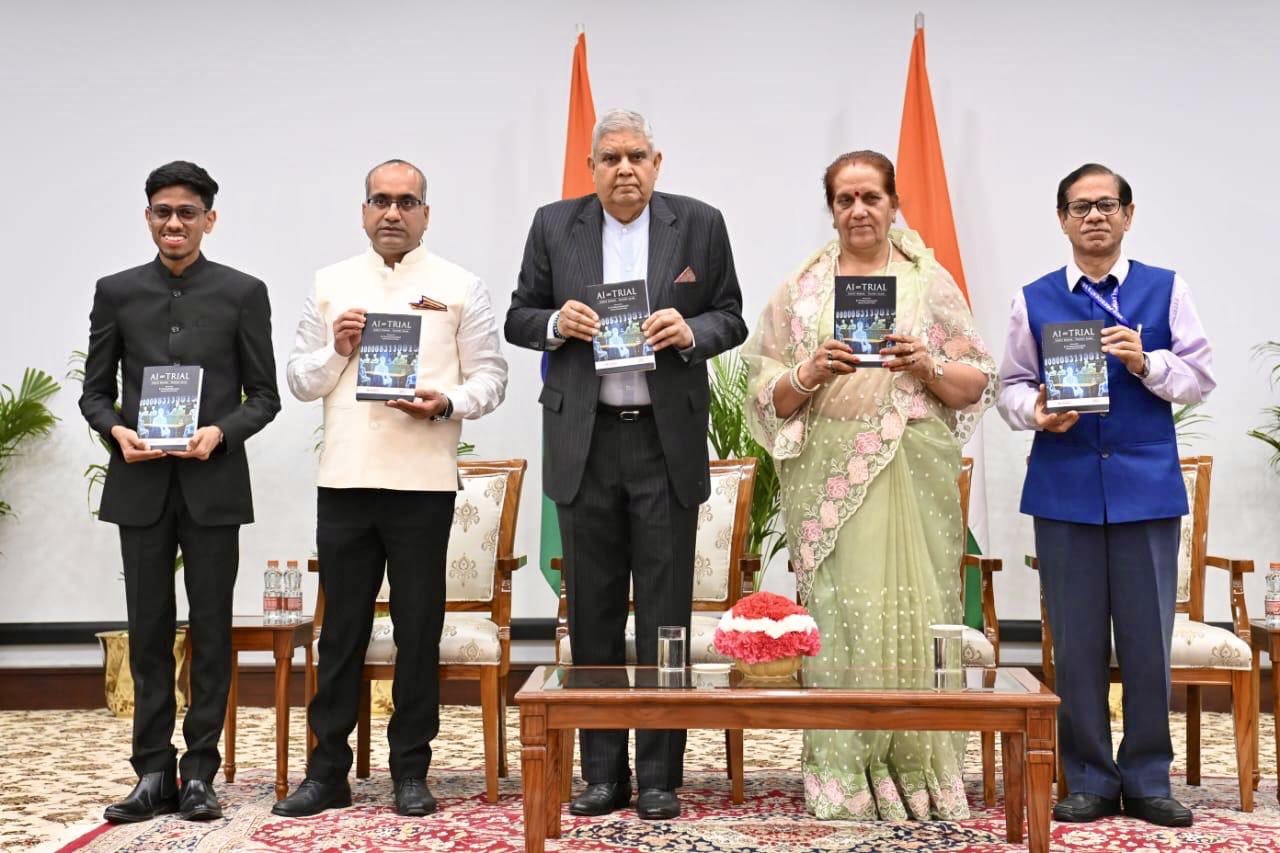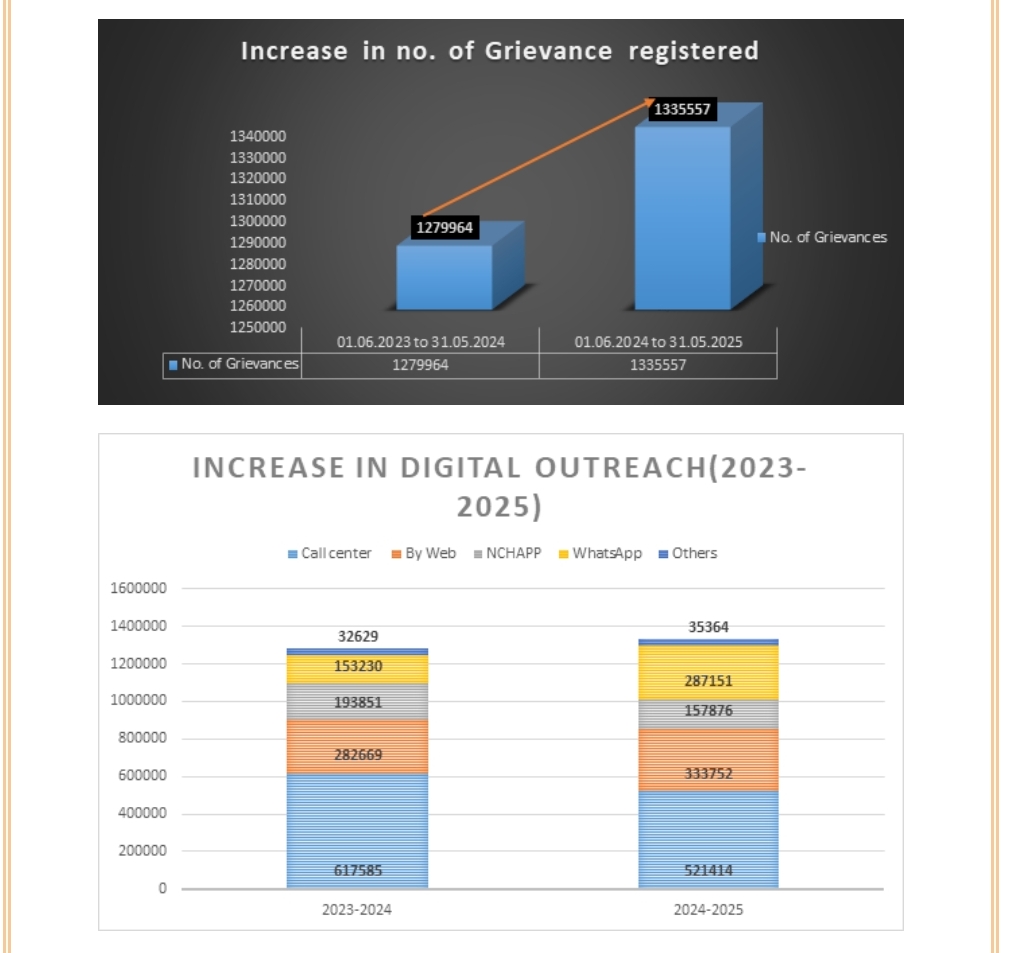Vice President Calls for Regulation of AI to Protect Citizens, Advocates for Independent AI Authority.
Need for Balance Between Innovation and Safeguards in AI Regulation: Vice President Dhankhar.
New Delhi:
Vice President of India, Jagdeep Dhankhar, today highlighted the urgent need for regulation in the field of Artificial Intelligence (AI) while ensuring a balance between fostering innovation and safeguarding the interests of citizens. Speaking at the release of the book ‘AI on Trial’ by Sujeet Kumar, Member of Rajya Sabha, Shri Dhankhar warned of the potential dangers of unregulated AI, stressing the importance of an ethical framework that ensures technology serves the people, not the other way around.
“Regulating AI will determine the kind of society we aspire to be. Do we wish to live in a digital dystopia where humans serve algorithms, or in a humane society where technology serves the people?” the Vice President questioned, underlining the profound impact that AI regulation will have on the future of India.
He called for the creation of an independent, accountable National Artificial Intelligence Authority to provide oversight and develop a robust regulatory framework. This body would include representation from government, industry, academia, and civil society, he noted. Such a framework, he said, should not stifle innovation but rather ensure that AI benefits society as a whole, particularly by neutralizing harmful or exploitative designs.

In his speech, Shri Dhankhar emphasized the need for specific rights to protect citizens from the unintended consequences of AI. “We need enforceable rights such as the right to explanation, the right to contest automated decisions, and the right to opt out of algorithmic processing, especially when these decisions impact livelihoods, liberty, and dignity,” he added.
The Vice President also stressed the need for transparency in AI regulation. He pointed out that AI’s growing influence across sectors—from healthcare to social media—requires clear and precise guidelines. “The impact of AI on ordinary citizens must be at the heart of the regulatory regime. The system must provide automatic, inbuilt relief to ordinary citizens,” he said.
Drawing parallels between AI and nuclear power, Dhankhar warned of the potential dangers if AI is left unchecked. “AI is like a powerful force—on one hand, it can energize industries and improve lives, but on the other hand, if misused, it can wreak havoc,” he cautioned.
Additionally, the Vice President highlighted the importance of enhancing digital literacy and vocational training, especially for marginalized and vulnerable groups, to prepare them for an AI-driven future. He also underscored the need for India to assert its cyber sovereignty while aligning with global standards to ensure a fair, rule-based international order in AI governance.
Addressing the legal ramifications of AI, Dhankhar raised concerns about the potential risks to justice and accountability. He noted that AI’s opacity challenges traditional legal principles and transparency, urging that algorithms should not replace human judgment in the legal system. “Justice at risk, when algorithms influence law, judgments can’t be robotized,” he asserted.
Finally, he reiterated the importance of meaningful consent in digital interactions, stressing that consent obtained through opaque and convoluted terms of service is not truly free. “Consent that is not free is no consent in law,” he said, advocating for stricter enforcement of data protection regulations.
The event was attended by Sujeet Kumar, MP; Sudha Murthy, MP; Rekha Sharma, MP; and Sunil Kumar Gupta, Secretary to the Vice-President, along with other dignitaries.
The Vice President’s remarks come at a time when AI is rapidly reshaping industries and daily life, emphasizing the critical need for a well-structured regulatory approach to safeguard citizens and uphold ethical standards.




